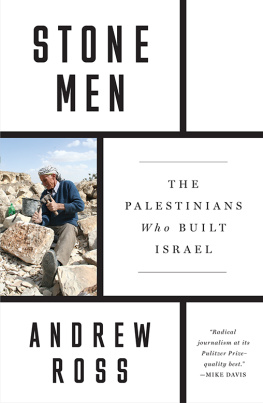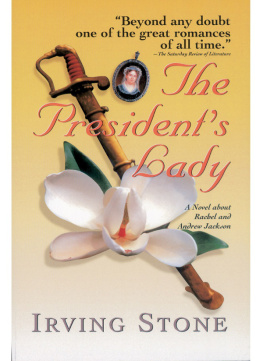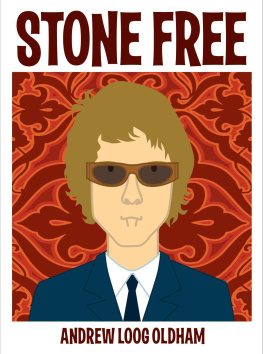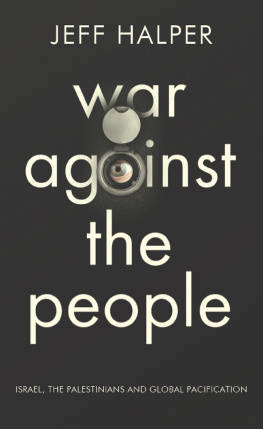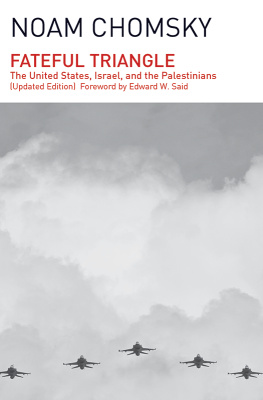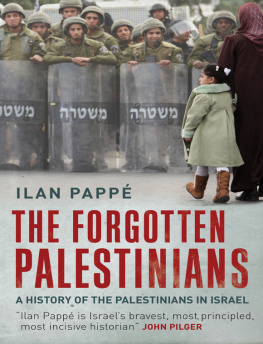Andrew Ross - Stone Men: The Palestinians Who Built Israel
Here you can read online Andrew Ross - Stone Men: The Palestinians Who Built Israel full text of the book (entire story) in english for free. Download pdf and epub, get meaning, cover and reviews about this ebook. year: 2019, publisher: Verso Books, genre: Politics. Description of the work, (preface) as well as reviews are available. Best literature library LitArk.com created for fans of good reading and offers a wide selection of genres:
Romance novel
Science fiction
Adventure
Detective
Science
History
Home and family
Prose
Art
Politics
Computer
Non-fiction
Religion
Business
Children
Humor
Choose a favorite category and find really read worthwhile books. Enjoy immersion in the world of imagination, feel the emotions of the characters or learn something new for yourself, make an fascinating discovery.
- Book:Stone Men: The Palestinians Who Built Israel
- Author:
- Publisher:Verso Books
- Genre:
- Year:2019
- Rating:5 / 5
- Favourites:Add to favourites
- Your mark:
- 100
- 1
- 2
- 3
- 4
- 5
Stone Men: The Palestinians Who Built Israel: summary, description and annotation
We offer to read an annotation, description, summary or preface (depends on what the author of the book "Stone Men: The Palestinians Who Built Israel" wrote himself). If you haven't found the necessary information about the book — write in the comments, we will try to find it.
Stone Men: The Palestinians Who Built Israel — read online for free the complete book (whole text) full work
Below is the text of the book, divided by pages. System saving the place of the last page read, allows you to conveniently read the book "Stone Men: The Palestinians Who Built Israel" online for free, without having to search again every time where you left off. Put a bookmark, and you can go to the page where you finished reading at any time.
Font size:
Interval:
Bookmark:

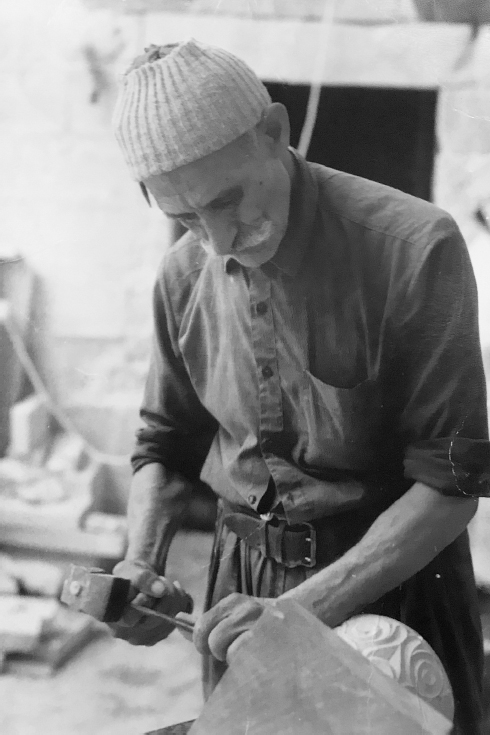
Courtesy of Riwaq
Palestinian stonemason at work.
The Palestinians
Who Built Israel
Andrew Ross

First published by Verso 2019
Andrew Ross 2019
All rights reserved
The moral rights of the author have been asserted
1 3 5 7 9 10 8 6 4 2
Verso
UK: 6 Meard Street, London W1F 0EG
US: 20 Jay Street, Suite 1010, Brooklyn, NY 11201
versobooks.com
Verso is the imprint of New Left Books
ISBN-13: 978-1-78873-026-6
ISBN-13: 978-1-78873-028-0 (UK EBK)
ISBN-13: 978-1-78873-029-7 (US EBK)
British Library Cataloguing in Publication Data
A catalogue record for this book is available from the British Library
Library of Congress Cataloging-in-Publication Data
Names: Ross, Andrew, 1956- author.
Title: Stone men : the Palestinians who built Israel / Andrew Ross.
Description: London ; Brooklyn, NY : Verso, 2019. | Includes bibliographical references
Identifiers: LCCN 20180415521 ISBN 9781788730266 | ISBN 9781788730297 (US ebook)
Subjects: LCSH: Construction industryPalestine. | StonemasonryPalestine. | StonemasonsPalestine. | Palestine ArabsEmploymentIsrael. | Arab-Israeli conflictEconomic aspects. | Labor supplyPalestineHistory.
Classification: LCC HD9715.P2 R67 2019 | DDC 331.7/69310089/927405694dc23
LC record available at https://lccn.loc.gov/2018041552
Typeset in Fournier by MJ & N Gavan, Truro, Cornwall
Printed and bound by CPI Group (UK) Ltd, Croydon, CR0 4YY
I n the course of researching this book, I learned quite a bit about stone. But it was only after I started writing that I realized how much this interest had been latent since those years I spent in high school and college working on construction sites and in the precast concrete company where my brother Martin was also employed as an accountant. During that period I picked up some skills on the job and also some valuable life advice from fellow workers. I prize the sensuous memory of the materials that we handled: the feel of thick concrete scooped up on a shovel, the tang of fresh mortar and cement, and the heft of bricks balanced on a hod. Many of the workers I interviewed in the West Bank and Israelin the quarries, factories, and building siteswere doing similar kinds of jobs and, in some cases, using the same materials. However remote from their circumstances, this personal connection to their craft and toil helped me write the book.
I owe many debts to colleagues and friends who read the manuscript at earlier stages: Zachary Lockman, Amin Husain, Tyler Bray, Julie Livingston, Maggie Gray, Kareem Rabie, and Eyal Weizman. They improved it with their suggestions, and, in some cases, scrupulous attention.
In the West Bank, I could not have done this research without the assistance and warm company of my Bethlehem circle: Mohammed Habshe Yossef, Amina Salah, Barah Odeh, Mohammed Abu Srour, and the staff from Aida Camp who worked at the Al-Karmeh restaurant. I want to acknowledge the help of Magid Shihade, Salim Abu Jamal, Nithya Nagarajan, Shatha Safi, and Fida Touma in Ramallah. In Jaffa, Sami Abu Shehadeh and Badawi Farra, and in Tel Aviv, Rachel Giora, Sharon Rotbard, and Assaf Adiv, were all generous with their time and insights.
Many thanks to my New York affinity group: Nitasha Dhillon, Amin Husain, and Yates McKee; to the extended cast of Decolonize This Place (Amy Weng, Marz Saffore, Crystal Hans, Kyle Goen, Moana Niumeitolu, and Lorena Ambrosio); and to the other intrepid members of the MTL/Palestine film crew: Tarina Van Den Driessche, Michael Clemow, and Eric Coombs Esmail.
I would also like to mention others who helped with queries and advice: Daniel Monterescu, Mark LeVine, Suad Amiry, Alexander Petti, Maya Wind, Hadas Keda, Sunaina Maira, Rose Asad, Paula Chakravartty, Sandy Hilal, Salim Tamari, Tareq Radi and Artemis Kubala.
Last but not least, I thank my editor, Andy Hsiao, at Verso; his deep support for this book and his efforts to enliven my prose were most welcome.
M uch of this book is based on interviews conducted over the course of three years (201518) in the West Bank, East Jerusalem, and Israel. I have changed the names of many persons quoted in these pages to protect their identities. Some of my interviews were conducted in English, but most were in Arabic, in the presence and with the assistance of real-time translators.
In the text, I refer to indigenous residents of Palestine before and during the British Mandate (192248) as Arabs. After 1948, I refer to them as Israeli Palestinians if they are Arab citizens of Israel, or simply Palestinians if they are from the West Bank and Gaza. In places, I also refer to West Bank Palestinians who commute to work inside Israel. Palestine is not an easily recognizable geographic and political body (only Area A of the Occupied Territories is nominally under the control of the Palestinian Authority or Hamas), so I have tried to avoid using the name to refer to a national or physical entity. Instead, Occupied Territories is more generally used in these pages, and it refers to the 22 percent of historic Palestine that Israel has occupied since 1967.
Because of the many obstacles to access, I regret I was not able to do any research for this book in Gaza.
Who built the seven gates of Thebes?
The books are filled with names of kings.
Was it the kings who hauled the craggy blocks of stone?
And Babylon, so many times destroyed.
Who built the city up each time?
Bertolt Brecht, A Worker Reads History
K ibbutz Ginosar, on the palm treelined shores of the Sea of Galilee, seemed like an agreeable place to spend the winter and spring months of 1979. The communal farming ideal of kibbutz life promised a welcome respite from the paramilitary discipline and heavy weather rigors of the North Sea oil rig where I had worked since graduating from university in Scotland. A volunteer stint on a kibbutz had become a fixture on the international circuit favored by young European travelers. The lifestyle on offer was tailor-made for late hippy souls like myself: morning labor in the fields, creative relaxation in the afternoons, and libertine revelry after sundown.
The other volunteers, European and North Americans, were a freewheeling, cosmopolitan crowd. Some of us were well aware of our value to the kibbutz as a source of free labor, though we got some payback from the after-hours routine of provoking the more austere kibbutzniks with our unruly ways. Because I had some literary skills, I was nominated to be the resident playwright, responsible for scripting skits that we staged at the back of Field 17, our nightclub. It was not difficult to find timely material nearby for these routines. Israeli forces had recently withdrawn from their first invasion of southern Lebanon (Operation Litani), but PLO fedayeen encampments were still close enough to the Israeli border to lob Katyusha rockets into the Lower Galilee. Twice during my stay in Ginosar, these rockets landed in the vicinity of the kibbutz. On each occasion, within half an hour, Israeli jets swept down over the water en route to pounding the PLO guerrilla positions thirty kilometers to the north. The asymmetry in the sky was plain to see, and, from what I could tell, it infuriated most of the volunteers, eclipsing any fears we might have had about our own safety. Among this peace and love crowd, sentiment clearly ran against the overmilitarized Israeli forces, and it was easy to stir up the nightclub audience by injecting dark comedy into our on-stage satires.
Font size:
Interval:
Bookmark:
Similar books «Stone Men: The Palestinians Who Built Israel»
Look at similar books to Stone Men: The Palestinians Who Built Israel. We have selected literature similar in name and meaning in the hope of providing readers with more options to find new, interesting, not yet read works.
Discussion, reviews of the book Stone Men: The Palestinians Who Built Israel and just readers' own opinions. Leave your comments, write what you think about the work, its meaning or the main characters. Specify what exactly you liked and what you didn't like, and why you think so.

